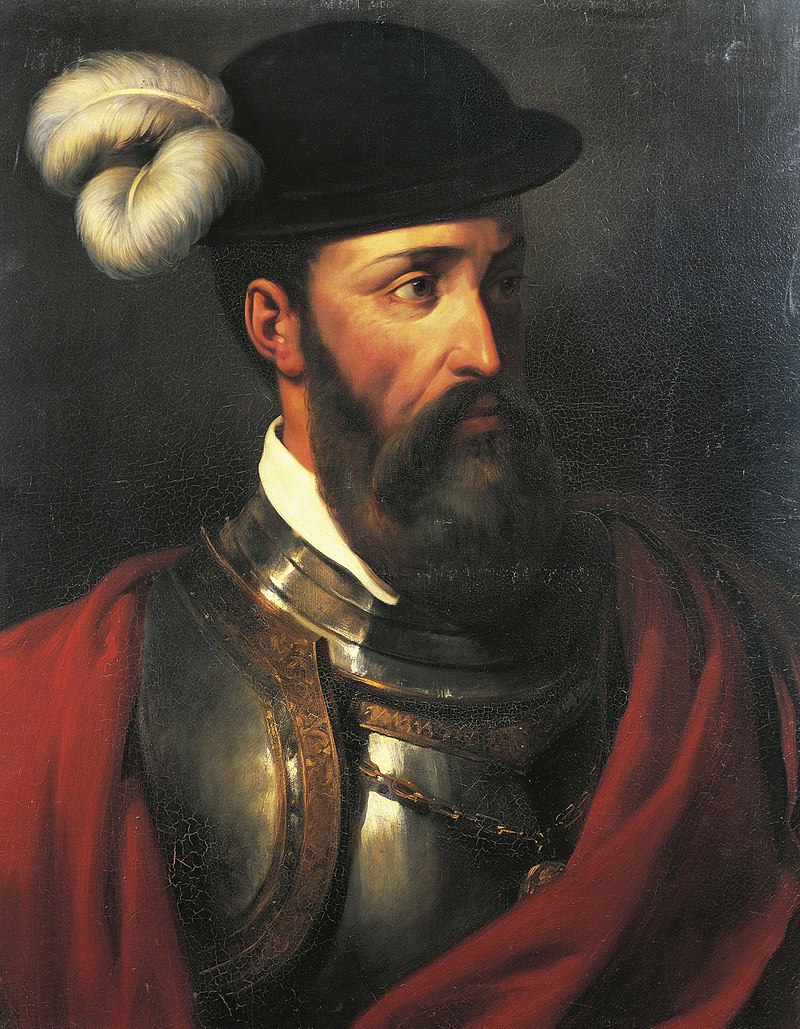Francisco Pizarro, a name synonymous with the Spanish conquest of Peru, was a man of ambition and adventure. Born around 1476 in Trujillo, Spain, he would rise from humble beginnings to become one of the most infamous figures in the history of exploration and conquest. His journey is filled with tales of bravery, betrayal, and the insatiable quest for wealth that defined the era of discovery.
Who Was Francisco Pizarro?
In 1513, Francisco Pizarro joined Vasco Núñez de Balboa in his march to the "South Sea," during which Balboa discovered the Pacific Ocean. By 1532, Pizarro, along with his brothers, successfully conquered Peru, establishing a new capital, Lima, three years later. Sadly, his life came to a violent end on June 26, 1541, when he was assassinated in Lima by members of a rival faction of conquistadors.
Early Years and Ambitions
Pizarro was born an illegitimate child in a poverty-stricken area of Spain. His father, Captain Gonzalo Pizarro, worked as a farmer, while his mother, Francisca González, came from humble origins. Growing up, Pizarro lacked formal education, spending his early years herding pigs instead of learning to read.
As a young man, tales of the New World ignited his desire for exploration and wealth. In 1510, he embarked on a journey with Spanish explorer Alonzo de Ojeda to Urabá, Colombia. Despite the expedition's lack of success, Pizarro's reliability in tough situations began to shine through.
March to the Sea
In 1513, Pizarro took part in the historic march to the "South Sea" alongside Balboa, crossing the Isthmus of Panama. During this expedition, they discovered what is now known as the Pacific Ocean, although Balboa claimed the credit for its discovery. This partnership was short-lived, as Pizarro later arrested Balboa on the orders of a rival, Pedro Arias de Ávila, showcasing the treacherous dynamics of conquest.
After Balboa's arrest, Pizarro settled in Panama, where he gained wealth and influence by serving as mayor of Panama City. He was awarded an estate, further solidifying his status as a prominent figure in the region.
Reconnaissance Voyages and Conquests
In 1524, Pizarro joined forces with navigator Diego de Almagro and priest Fernando de Luque to explore further territories. Their reconnaissance voyages took them to the San Juan River and beyond, revealing the vast potential of the southern regions. Bartolomé Ruiz, Pizarro's chief navigator, played a crucial role by crossing the equator and reporting on the rich lands to the south.
By 1528, Pizarro returned to Spain and secured a commission from Emperor Charles V to conquer the southern territories. In 1532, he accomplished this feat by overthrowing the Inca leader Atahualpa, marking the beginning of Spanish dominance in Peru. He established Lima as the new capital three years later, signifying the expansion of Spanish influence in South America.
Conflict and Assassination
As time passed, tensions escalated between the original conquistadors and newer arrivals eager to claim their stake in the burgeoning Spanish province. This rivalry led to a split into two factions: one led by Pizarro and the other by Almagro, once his ally. The conflict culminated in the Battle of Las Salinas, where Pizarro's faction emerged victorious, leading to the capture and execution of Almagro in 1538.
Pizarro's reign was ultimately cut short when, on June 26, 1541, he was assassinated in Lima by vengeful members of Almagro's faction, illustrating the brutal reality of power struggles in the era of conquest.
Notable Facts about Francisco Pizarro
Throughout his life, Pizarro made significant contributions to the Spanish conquest, but it came at a high cost. Here are some quick facts:
- Name: Francisco Pizarro
- Birth Year: 1476
- Death: June 26, 1541
- Nationality: Spanish
- Birth City: Trujillo, Spain
- Death City: Lima, Peru
Reflections from Pizarro's Life
Pizarro's journey is filled with powerful lessons and quotes that resonate even today. Here are a few notable ones:
- "Choose. You may return to the poverty of Panama or cross this line and come with me through infinite dangers but eventual wealth."
- "Prepare your hearts as a fortress, for there will be no other."
- "No man should think of going forward in the expedition, who could not do so with his whole heart, or who had the least misgiving as to its success."
- "Let every one of you take heart and go forward like a good soldier, nothing daunted by the smallness of your numbers."
Pizarro's life illustrates the complexities of ambition and the often violent nature of conquest. His legacy is a reminder of the profound impact one individual can have on history, shaping the world in ways that echo through time.
Lisa Marie Presley: A Journey Through Her Life And Legacy
The Inspiring Journey Of Sheryl Crow: A Musical Icon And Activist
Elizabeth Kloepfer: The Woman Behind Ted Bundy's Dark Legacy
:max_bytes(150000):strip_icc()/Portrait_of_Francisco_Pizarro-57ba592d5f9b58cdfd3e507d.jpg)

